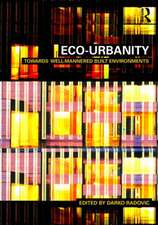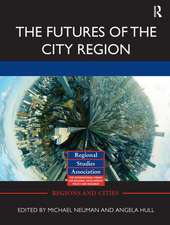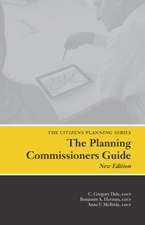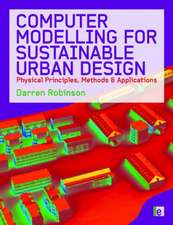The Imaginative Institution: Planning and Governance in Madrid
Autor Michael Neumanen Limba Engleză Paperback – 23 noi 2016
| Toate formatele și edițiile | Preț | Express |
|---|---|---|
| Paperback (1) | 469.34 lei 6-8 săpt. | |
| Taylor & Francis – 23 noi 2016 | 469.34 lei 6-8 săpt. | |
| Hardback (1) | 1112.34 lei 6-8 săpt. | |
| Taylor & Francis – 19 oct 2010 | 1112.34 lei 6-8 săpt. |
Preț: 469.34 lei
Nou
Puncte Express: 704
Preț estimativ în valută:
89.84€ • 97.62$ • 75.51£
89.84€ • 97.62$ • 75.51£
Carte tipărită la comandă
Livrare economică 22 aprilie-06 mai
Preluare comenzi: 021 569.72.76
Specificații
ISBN-13: 9781138260764
ISBN-10: 1138260762
Pagini: 256
Dimensiuni: 156 x 234 mm
Greutate: 0.45 kg
Ediția:1
Editura: Taylor & Francis
Colecția Routledge
Locul publicării:Oxford, United Kingdom
ISBN-10: 1138260762
Pagini: 256
Dimensiuni: 156 x 234 mm
Greutate: 0.45 kg
Ediția:1
Editura: Taylor & Francis
Colecția Routledge
Locul publicării:Oxford, United Kingdom
Cuprins
Contents: Preface; Taming the metropolitan medusa; Institutional evolution and cognition: an overview; Planning institutions and images: a brief review; Planning, images, and Madrid's new regional government; The evolution of Madrid's modern planning institution; Urban planning and images; Continuity and change: the dialectic of institutional evolution; Prolegomena to a theory of institutional evolution; Appendices; References; Index
Notă biografică
Michael Neuman is at the Faculty of the Built Environment, University of New South Wales, Sydney, Australia
Recenzii
'Firstly, congratulations. It's truly a magnificent book and, I believe, extremely important from the Madrid perspective where there is a dearth of analysis and critical perspective.' Javier Ruiz, Universidad Politecnica de Madrid, Spain 'Michael Neuman has tackled and unravelled the fundamental elements that underpin successful urban governance and public administration. He has delivered a conceptual framework to guide anyone interested in designing, delivering and managing urban environments. With the pressing need to transform cities to be environmentally sustainable, I can think of no better guide for planners, urban designers, landscape architects, architects, urban managers and politicians at every level of government than this book.' Alec Tzannes, UNSW Sydney, Australia '... The Imaginative Institution is a well-written book that both urban scholars and planners, along with scholars in numerous other disciplines, will welcome. ... Neuman succeeds in the integration of multidisciplinary perspectives to inform his work on the historic and contempormy development of regional planning in Madrid.' Journal of Planning Education and Research
Descriere
Drawing on an in-depth critical analysis of Madrid's planning processes over the past century, Michael Neuman highlights a planning cycle in this city from preparation to implementation. He argues that Madrid's success in creating a positive urban environment is due to the fact that the planners created images as key tools that coordinated planning and urban policy.
















